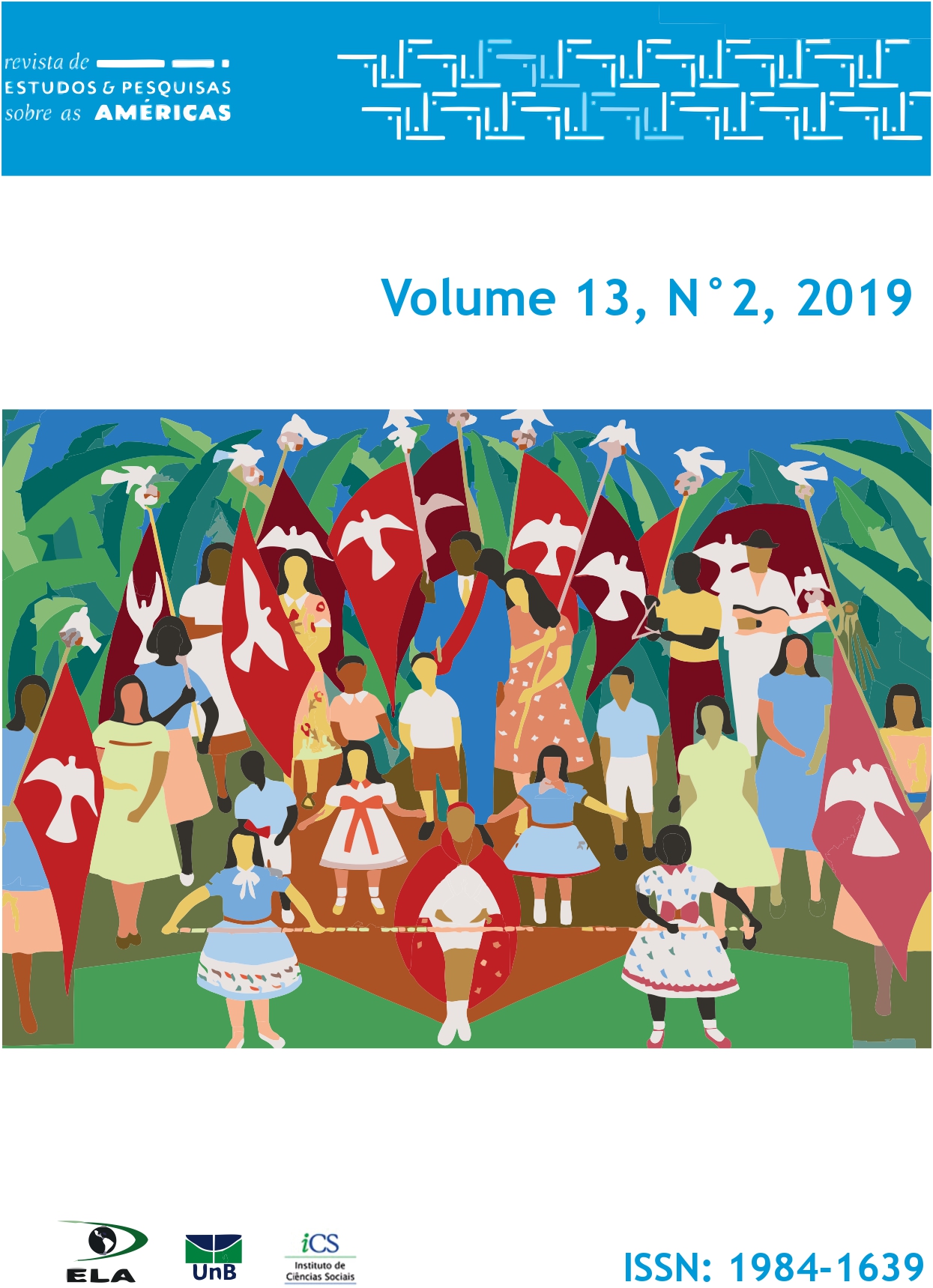oposição entre “Estado Instrumental” e “Estado Plurinacional” em sociedades “abigarradas”
notas sobre o processo político na Bolívia contemporânea
DOI:
https://doi.org/10.21057/10.21057/repamv13n2.2019.23399Keywords:
Estado instrumental; Independência inconclusa; Sociedade abigarrada; BolíviaAbstract
The article analyzes the specificities of the historical-political process that shaped the Latin American national states, in order to detail some of the characteristics resulting from their (de)formation. There for, methodologically, contributions and perceptions made by LatinoAmericanists authors are mobilized, emphasizing the weight of the structural conditions inherited from Colonialism in the consolidation of an "instrumental" State, with a strong "abigarramiento" and that tends to perpetuate the situation of "incomplete independence" of Latin American nations. The objective is to present and interrelate this conceptual basis to detail the "case" of the Bolivian [Pluri]National State, which, after a secular history as an instrumental state in a society abigarrada tries, in the wake of the new constitutional text of 2009, advance in the process of consolidating a propositional resistance to the logic and "traditional" agencies of political power. It is, therefore, an analytical exercise that objectives, based on the study of the Bolivian case, to expose critical argumentative constructions about the paradox between the "State-centric" heritage and the "Plurinational" reality of Latin American societies.
Downloads
Downloads
Published
How to Cite
Issue
Section
License
The published material is the property of the Journal, and may be reproduced in whole or in part with indication of the source.
Copyright: Authors will be responsible for obtaining the copyright of the material used. Authors who publish in this journal agree to the following terms:
a)Authors retain the copyright and grant the journal the right of first publication, with the work simultaneously licensed under
the Creative Commons Attribution License which allows the sharing of work with acknowledgment of authorship and initial publication in this journal.
b) Authors are authorized to take additional contracts separately, for non-exclusive distribution of the version of the work published in this journal (eg, publish in institutional repository or as a book chapter), with acknowledgment of authorship and initial publication in this journal.
c) Authors are allowed and encouraged to publish and distribute their work online (eg in institutional repositories or on their personal page) at any point before or during the editorial process, as this can generate productive changes as well as increase the impact and the citation of the published work (See The Effect of Free Access).
















